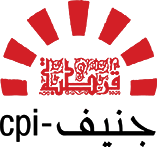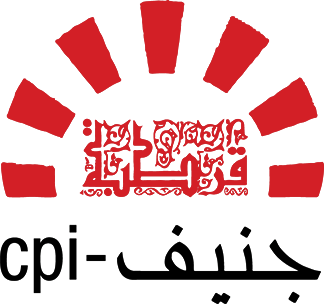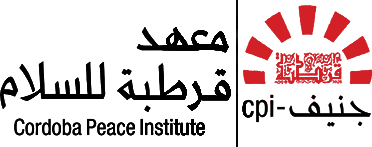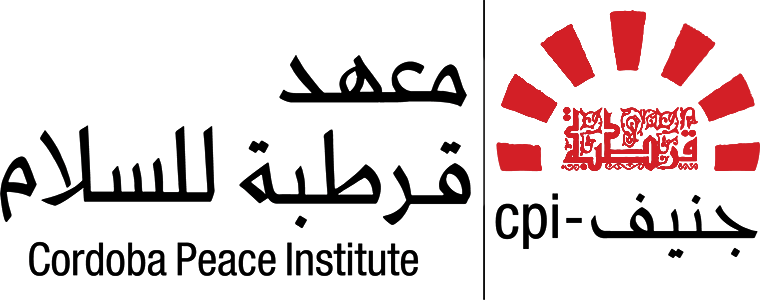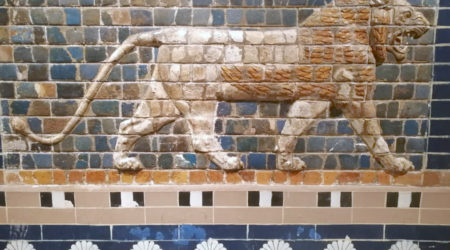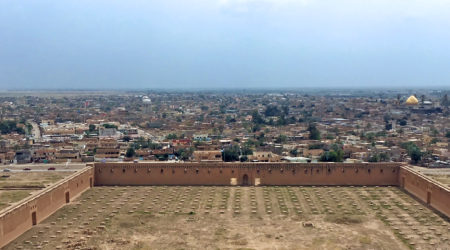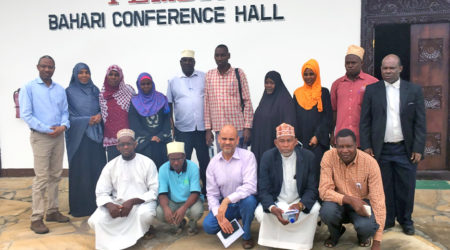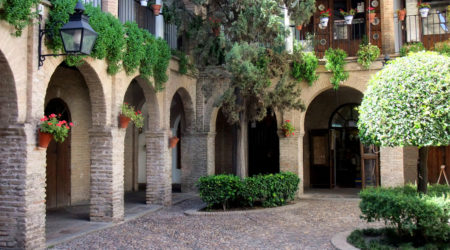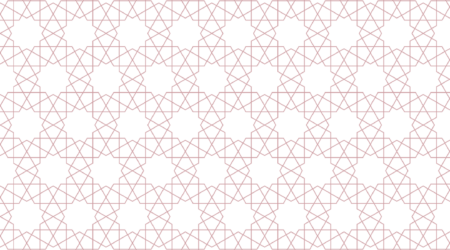Weekly Update 20-26.01.2015

1) MAROC
» 22.01.2015 : Adoption d’une Nouvelle Loi « Antiterroriste »
A l’occasion d’une session plénière, la Chambre des représentants a adopté le 21 janvier la loi 14-86 relative au code pénal et à la procédure pénale pour la lutte antiterroriste. Cette nouvelle loi constitue un dispositif législatif élargi incluant des peines privatives de liberté plus sévères. Les peines s’étendent désormais à toute personne ayant suivi un entraînement d’une organisation dite terroriste ou ayant fait l’apologie du « terrorisme ». De plus, il est possible désormais pour les autorités marocaines d’interpeller et de juger tout citoyen étranger se trouvant sur son territoire et accusé de crimes dits terroristes dans d’autres pays.
http://telquel.ma/2015/01/22/les-representants-adoptent-loi-antiterroriste_1431114
Code pénal marocain :
http://www.coe.int/t/dghl/cooperation/economiccrime/cybercrime/Documents/CountryProfiles/CriminalCodeMorocco.pdf
2) LIBYA
» 22-26.01.2015: Libya’s Geneva 2 Dialogue: “Don’t Expect Immediate Results”
On Sunday 25 January, UNSMIL announced that talks among Libyan crisis stakeholders would take place on Monday in preparation for a second round of dialogue on Wednesday. Leon’s press release indicated that this second round would convene representatives of local and municipality assemblies from across Libya. Following the talks on Monday, Leon admitted that there are changes ahead and “not to expect immediate results.” The resumption of clashes right after the first round (14-15 January) came to complicate Leon’s task, especially, after that pro-Hafter militia allegedly attacked Benghazi’s central bank and looted huge sums of money and other deposits. UNSMIL condemned the attack and called for an independent inquiry into the incident. The attack compelled Tripoli’s Al Hassi government to freeze its decision to join the UN dialogue if held inside Libya. Besides, Leon’s talk, to the Financial Times on 22 January, of his discussions about peacekeeping forces in Libya with namely the US, UK, and France, has ignited very negative public sentiment towards his role. The statement has undermined the position of those who accepted to go to Geneva, without the permission of the General National Congress. Leon’s FT interview has alarmed the political and military leadership in Libya, who now think their conditions of clarifying the dialogue process, agenda, etc. before engaging in any dialogue round are very justified. The FT interview sent the impression that Leon has already a roadmap that he would like to impose as the outcome of the Geneva dialogue regardless of Libyan crisis stakeholders agree at the negotiation table. Some key towns, such as Misrata, whose local council participated in the first round, are calling now on their representatives to withdraw from the UN Geneva process in light of Leon’s FT statements.
http://www.ft.com/cms/s/0/28b8486a-a185-11e4-b176-00144feab7de.html#axzz3Q1isErqS
http://unsmil.unmissions.org/Default.aspx?tabid=3543&ctl=Details&mid=6187&ItemID=1993612
https://www.youtube.com/watch?x-yt-ts=1421914688&x-yt-cl=84503534&v=sHEPDfJxvnI
3) TUNISIA
» 23-26.01.2015: Born Dead: Essid’s Cabinet Fails to Convince
On Friday 23 January, Tunisian PM Habib Essid announced the composition of his government; but by the weekend, it became clear that Essid’s cabinet would not survive a vote of confidence at the National Assembly. First came Ennahdha’s decision not to endorse Essid’s government because it believed that Tunisia “needs a government of national unity… and that the composition of the present government does not reflect the diversity of the Tunisian political landscape.” Ennahdha’s decision was echoed by other political parties such as the Hama Hamami’s leftist Popular Front (15 seats), Afak Tounes (8 seats), and Kamel Morjane’s Al Moubadara (Initiative) Party (3 seats). Nida Tounes with 86 seats and Slim Riahi’s Union Patriotique Libre (16 seats) would have certainly faced defeat in parliament against the opposition with Ennahadh’s 69 seats, and the votes of the Popular Front, Afak Tounes, Al Moubadar, and other independent deputies. Nidaa Tounes even faced internal division within its ranks, while some figures and deputies expressed publically their rejection of Essid’s proposed cabinet. By Sunday, the Assembly session which was scheduled for Monday to vote the cabinet was delayed and Essid had to resume consultations to reach consensus among the key political parties in the parliament on the new government. Thus, Ennahdha and the Popular Front have demonstrated that they are key players in the political arena, and that Nidaa Tounes could not ignore them. While Ennahdha is demanding a national unity government, Hamami’s Popular Front seems to be determined to stay in the opposition and not take part in a government that included Ennahdha or technocrats from the former Ben Ali regime era.
http://www.kapitalis.com/politique/27182-politique-habib-essid-efface-presque-tout-et-recommence.html
http://www.ennahdha.tn/
4) EGYPTE
» 24.01.2015 : El-Baradei Sort de son Silence
El-Baradei a donné sa première interview à un journal autrichien depuis son retour d’Egypte en août 2013. Il explique notamment comment il a été utilisé par le pouvoir militaire et souligne son opposition à toute violence. Il dit regretter l’assaut mené contre les Frères musulmans.
Lien(s) pour plus d’information :
http://www.alaraby.co.uk/politics/65618b7a-9764-4543-adc4-018704057fed
http://diepresse.com/home/politik/aussenpolitik/4646594/ElBaradei
5) YÉMEN
» 22.01.2015 : Démission du Président
Jeudi 22 janvier 2015, le président Abed Rabbo Mansour Hadi et tous les membres de son cabinet ont déposé leur démission et sont, depuis ce jour, assignés à résidence par Ansar Allah (Houthis). Cette démission présentée au parlement place le pays devant deux scénarios possibles :
- Le premier scénario envisage l’acceptation de la démission par le parlement et le choix d’un nouveau président.
- Le second scénario envisage un refus de la démission par le parlement. Celui-ci persuaderait ensuite Hadi d’y renoncer lui-même.
Un troisième scénario qui envisageait la formation d’un conseil présidentiel constitué des diverses factions politiques n’est à ce jour plus envisageable. Ce scénario, favorable à Ansar Allah, leur aurait permis de désigner un vice-président, puis de pousser lentement Hadi à la sortie après avoir aménagé une succession leur étant favorable.
Selon la constitution, si le siège présidentiel devait devenir vacant, ce serait au président du parlement d’assumer cette charge jusqu’à ce que des votations élisent le nouveau président, à moins qu’un conseil militaire annonce l’état d’urgence et le couvre-feu, ce qui mettrait fin également au pouvoir du parlement. Il est probable que le parlement cherche à persuader le président de revenir sur sa démission, mais le président pourrait s’en tenir à sa décision.
Plusieurs observateurs voient dans ces événements un coup d’Etat et une tentative de retour au pouvoir de l’ancien président Saleh comme certains indices ont pu le laisser penser depuis la prise de Sanaa par Ansar Allah en septembre dernier. La coordination entre Ansar Allah et Saleh, longtemps niée par ce dernier, aurait été confirmée la semaine dernière à travers la diffusion d’un appel téléphonique entre Saleh et l’un des leaders d’Ansar Allah. Pour certains, la démission du président Hadi et de son gouvernement renforce le scénario du retour de Saleh qui prendrait Abdel-Malik Al-Houthi ou l’un des représentants de son mouvement comme vice-président. Ce scénario commencerait peut-être par la nomination du président du parlement, Yahya al-Raï, proche de Saleh, comme président par intérim, selon ce que prescrit la constitution. Saleh ou son fils Ahmed Ali Saleh pourraient aussi parvenir accéder directement au pouvoir par l’intermédiaire d’un conseil militaire. D’autres observateurs considèrent plutôt que la démission du président mettrait les alliés conjoncturels que sont Ansar Allah et Saleh en rivalité, les premiers ayant conscience qu’une fois de retour au pouvoir, Saleh négligerait ceux qui lui ont permis cette accession.
Certains observateurs soulignent que les manifestations populaires ayant lieu dans la capitale depuis la démission du président pourraient dessiner le début d’un soulèvement populaire d’opposition à la présence d’Ansar Allah.
http://www.yementimes.com/en/1854/news/4835/Anti-Houthi-protestors-assaulted-and-arrested.htm
http://www.yementimes.com/en/1854/news/4834/President-and-Cabinet-members
https://www.middleeastmonitor.com/news/middle-east/16530-activist-yemen-suffering-from-counter-revolution
https://www.middleeastmonitor.com/news/middle-east/16522-houthi-leader-proposes
http://www.aljazeera.net/news/arabic/2015/1/26/
5) SAHEL
Mali :
» 24.01.2015 Tense Climate in Mali before the Next Round of Peace Negotiations
A Malian delegation including the President of the High Islamic Council, Mahmoud Dicko, and the archbishop of Bamako, Jean Zerbo, left Sunday to undertake a tour of Europe. The main objective of this visit is to discuss and gather support for the resolution of the crisis in the Northern part of the country. They will meet with political and religious leaders. Other prominent figures of this delegation include Chérif Ousmane Madani Haïdara, the former Prime Minister Mohamed Ag Hamani, the President of the Union Nationale des Travailleurs du Mali (UNTM) and the President of Feminine organizations of Mali.
Discussions took place last week-end in Algiers between the Algerian Minister of Foreign Affairs, Ramtane Lamamra, and the UN representative for Mali, Hamdi Mongi. The aim of this meeting was to prepare the 5th round of negotiations that shall start in February. The peace process is seriously compromised by the numerous attacks that have been taking place for the past few weeks in the Northern and Central-Western parts of the country. It is also put into questions by the outcry of a great part of the public opinion against the “project agreement for peace and reconciliation in Mali” that resulted from the last round of peace negotiations. Tensions are very high between the MINUSMA and the MNLA which mounted demonstrations against the MINUSMA in Kidal, Ber and Ménaka.
http://fr.africatime.com/mali/articles/nord-du-mali-lua-condamne-le-comportement
http://www.jeuneafrique.com/Article/ARTJAWEB20150122172347/#ixzz3Pv3KuR9S
Nigeria :
» 25.01.2015 : L’Environnement Difficile des Prochaines Elections Présidentielles
Lors de sa visite à Lagos, le secrétaire d’Etat américain John Kerry a soutenu qu’il « est impératif que les élections se tiennent à la date prévue » tandis qu’report du scrutin a été demandé en raison des déplacements de population liés à la violence de Boko Haram. En 2011, lors de la dernière élection, 800’000 personnes avaient été tuées et 65’000 avaient été déplacées.
http://www.jeuneafrique.com/Article/ARTJAWEB20150126083154/
http://www.aljazeera.com/news/africa/2015/01/boko-haram-launches-offensive
The views and perspectives contained in the Weekly Update are from individual contributors and external sources, and do not necessarily reflect the opinions or position of the Cordoba Foundation of Geneva. The links are neither intended as an endorsement of particular publications nor the only source for the updates, but to connect to information in the public domain, for those interested in background or further details.
